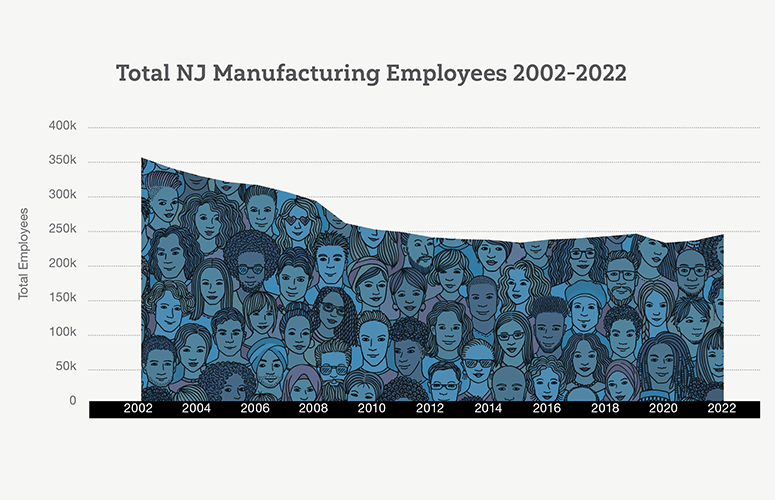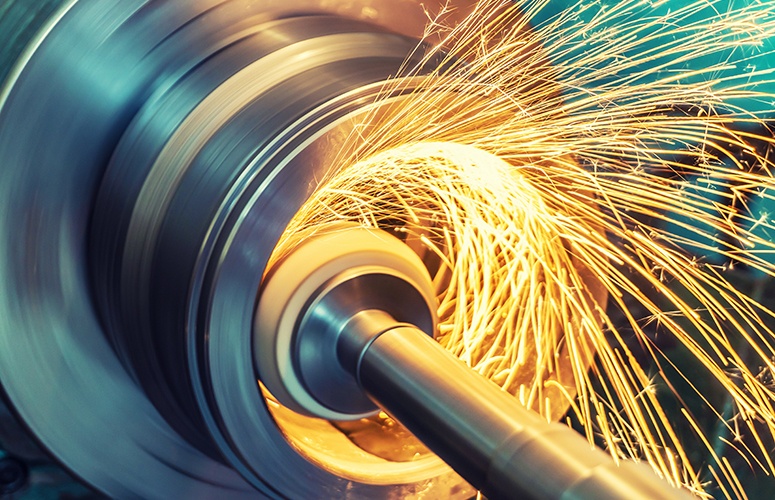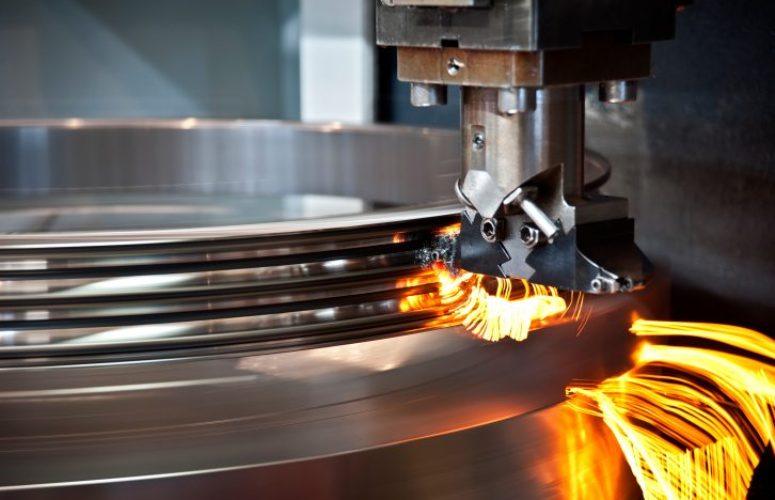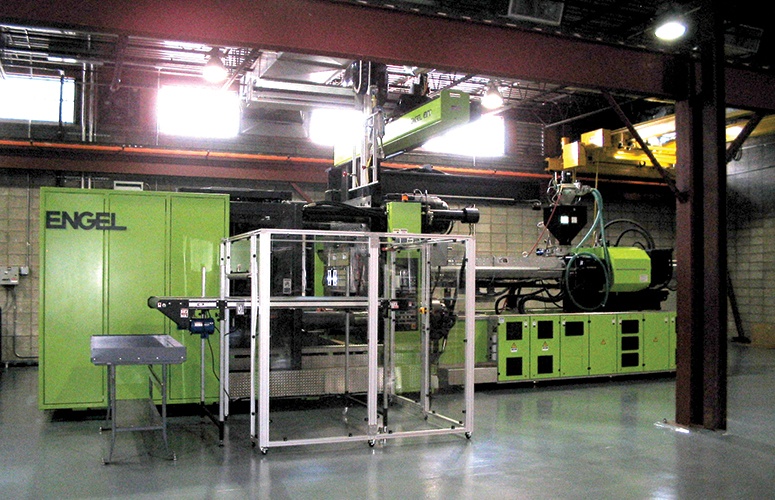
Focus NJ: Trends in Manufacturing
By Kyle Sullender, Executive Director of Focus NJ On Jan 31, 2024Following the supply chain disruptions of 2020 and 2021, no subject seemed to achieve such universal agreement as the importance of domestic manufacturing. Since then, states and the federal government have made broad investments in strengthening the U.S. manufacturing sector.
In a research paper published in 2012, the Metropolitan Policy Program at the Brookings Institution summarized four key reasons “why manufacturing matters,” including: the persistence of jobs paying high wages in the sector; manufacturing as a major source of innovation in the economy; the sector’s critical role in reducing the US trade deficit with foreign countries; and the outsized role manufacturing plays in the nation’s “green economy.”
Manufacturing in New Jersey: Although manufacturing’s share of the overall New Jersey economy has declined slightly in recent years, the industry remains one of the largest and most important in the state.
As of the first quarter of 2023, the manufacturing sector accounted for approximately 8.8% of New Jersey’s total Gross Domestic Product (GDP), making it the fourth largest sector in the state in terms of GDP.
That said, the makeup of the manufacturing sector in New Jersey has changed dramatically over the past two decades. Based on an analysis of data from the U.S. Bureau of Labor Statistics’ Quarterly Census of Employment and Wages conducted by Focus NJ, the overall level of employment in the sector in New Jersey fell by 40% between 2001 and 2015. The number of business establishments similarly fell by 25% over the same period.
In the years since, the sector has recovered slightly, and recent investments offer reasons to be optimistic that the trend will continue. In 2022, employment in the sector had grown by approximately 5% from its 2015 low. The number of business establishments in the sector had grown 13% over the same span, reaching its highest level (9,966) since 2010.
Looking ahead: Despite a number of positive trends in recent years, the manufacturing sector faces several challenges. Perhaps most important is the sector’s need to recruit the next generation of its workforce as its current cohort has steadily increased in age.
Attracting this workforce will mean not only increasing educational opportunities for workers, but also fighting an outdated understanding of what manufacturing work looks like and what kinds of skills are necessary for success.
– Kyle Sullender, Executive Director, Focus NJ
To access more business news, visit NJB News Now.
Related Articles:





